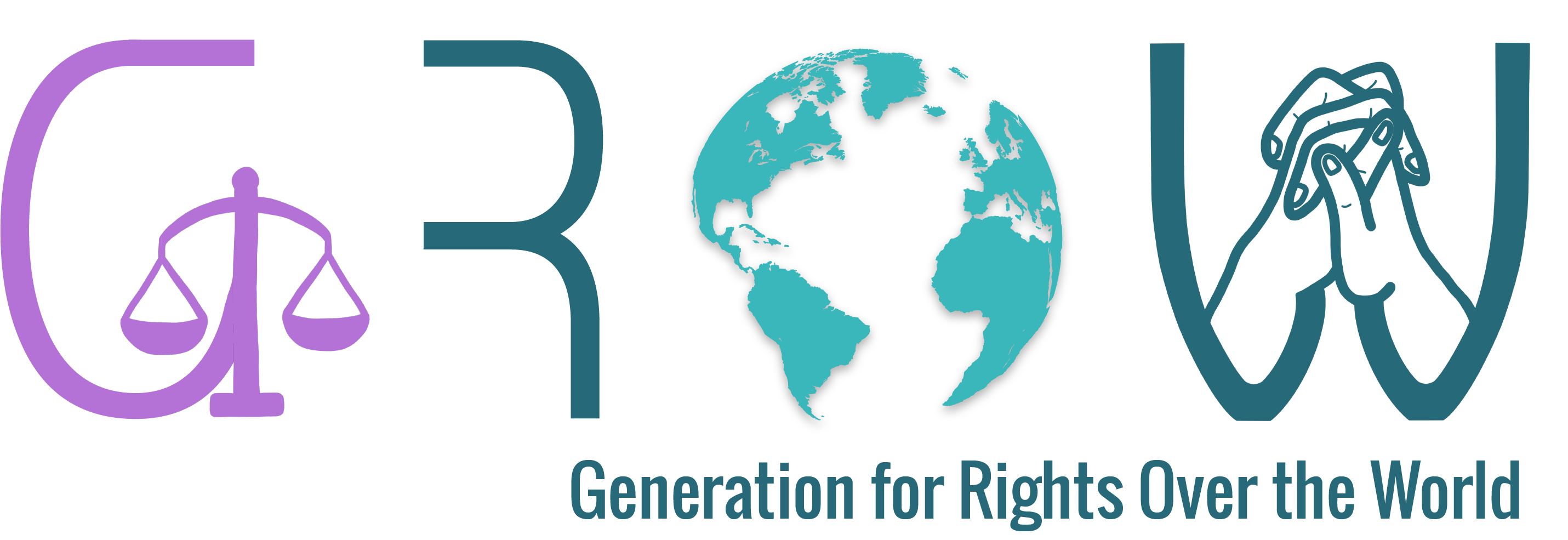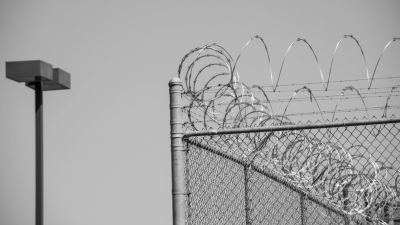Translated by Solange Meurier
The total freedom of press is a fundamental concept of democracy. However, in France, this freedom is questioned by various mechanisms and its guarantee is not ensured any more. Indeed, France was ranked 26th by Reporters without borders (Reporters sans frontières) in its ranking on freedom of press. This position is worrying since it doesn’t resemble the democratic values which France claims to embody.
Introduction
The General Secretary of the United Nations, António Guterres, declared that no democracy can be complete without a reliable and transparent access to information1. A free press is thus the first necessary condition for the creation of political and legal institutions which are fair and impartial. The press has the power and the duty to make aware of the elected members’ responsibilities to the citizens. Consequently, freedom of press is an undeniable founding principle of democracy and is absolutely necessary to the democratic debate. A democracy gives power to the people, total freedom of the press is thus vital to its good functioning. The press aims to inform the citizens of the current news in total transparency, in order for the citizens to be able to make free and informed choices. Therefore, democracies need to protect this institution. As a matter of fact, a democracy without total freedom of the press cannot be sound. It is then legitimate to question the state of freedom of the press in democracies.
According to UNESCO, 57 new laws in 44 countries were adopted or transformed since 20162. These laws have as a basis and common characteristic an extremely vague language aiming towards the spread of disinformation, and the propagation of fake news. Some of these laws have implications potentially threatening for the state of the freedom of press in those countries. Considering the tense climate towards the press in France, this article aims to examine the good functioning of the principle of freedom of the press. Indeed, France is a reference and a global symbol of democracy, human rights and freedom of the press. However, when we take some distance from the collective imaginary that France inspires, the facts are actually quite surprising. Every year, Reporter without borders (RSF) publishes its global ranking on freedom of the press3. In the most recent one, the edition of 2022, we can see France being ranked at the 26th position. It is progress compared to its position of 2020, where it stood at the 34th place, nonetheless this position remains severely worrying and problematic for a democratic republic supposed to defend the freedom of the press.
The freedom of the press in France, an issue for the French democracy
The total freedom of the press is inherent to the notion of democracy and to the popular and political debate. Various sources of information must be available easily and for free. However, we can observe that in France, the freedom of press is compromised by the owners of the big networks of journalistic information. As a matter of fact, the mass media networks are not free, as they are owned many times over by the same people. This can impinge upon the integrity of the journalists and prevent them from doing their work as they wish. The most consumed media are nowadays subject to a monopolization by the big press groups. RSF points out a “editorial independence of the media [which] is not sufficiently guaranteed for reasons of capital ownership, conflicts of interest which are greater than elsewhere, as media groups are increasingly owned by people who have outside interests and can, if necessary, use these media for influence”4.
A crushing majority of the press titles in France are indeed owned by a few families or investment groups likely to redirect the action of journalists, losing sometimes in freedom of writing on certain topics linked to their owners and their relatives, or even their opinions. Vincent Bolloré, Bernard Arnault or even Patrick Drahi, billionaires at the head of media empires, are thus usually mentioned when talking about the dangers of concentrating important national media in the hands of a tiny number of owners, especially when it comes to censorship. According to Radio France, the influence of Vincent Bolloré on the media is constantly growing5. He is mentioned directly in RSF’s 2022 report, for his worrying representation for the integrity and honesty of the media in France, as well as for his well-known methods of intimidation. He owns Canal Plus, Cnews or even Europe 1, Paris Match and the publishing company Hachette. Bernard Arnault is at the head of important newspapers such as Les Échos, or even Le Parisien. To finish off, Patrick Drahi owns BFMTV, RMC and Libération. This appropriation of popular media is extremely problematic for the integrity of the press and its primary quality, which is to be impartial and free of external issues. According to RSF, this worrying monopolization of the media in the hands of a few owners is facilitated by a pretty weak legal framework. While the law orders the plurality of information, very few mechanisms to verify it are available.
Moreover, the recent referral to the Autorité de Régulation de la Communication Audiovisuelle et Numérique (ARCOM) regarding the public channel CGTN is another indication of the influence exerted on information in France. The Chinese TV channel was accused of interviewing under duress a Uyghur child. Similarly, RT France, the French-speaking branch of the Russian international news channel Russia Today, is financed by the Russian State. Various specialists consider this channel as an organ of propaganda serving the Kremlin. The independence of the press in France is thus totally relative and highlights a question as for the true freedom that journalists enjoy in the country. Can the foreign influences of undemocratic countries harm the press’s duty to inform? A press controlled by a State is not free, as it is confronted with obligations and censorships. Thus, these foreign media in France can spread fake news in aid of its country of origin. This further undermines the perception of the media by an ordinary citizen, who would be increasingly suspicious of the press in general.
France was ranked 26th by Reporters without borders in their global ranking on freedom of the press. This position is a critical result for France and its core values. We can see a strong divergence with the image the country wishes to spread internationally, as we know that the Hexagon stays strongly attached to the imaginary of a human rights land and the notion of freedom. However, this position seems to be clashing with total freedom of the press and a true respect of journalists’ rights. Moreover, France’s rank is all the more worrying as it is in true discrepancy with some European liberal democracies and monarchies. We count around twenty countries in Europe ranked ahead of France, which is one of the lowest-ranked Western countries. While numerous least developed countries (LDC) are contained at the bottom of the ranking, this 26th position shows that considerable economic (and even political) development isn’t the guarantee for respected freedom of the press. The 8th and 12th positions respectively held by Costa Rica and Jamaica are an example. Consequently, although France stays in the first quarter of this ranking, it might envy some characteristics to states with a lower place. The freedom of the press in France is not as guaranteed as one would like to believe according to its image and values.
Moreover, the freedom of the press in France is constantly questioned by populist political movements. The political discourse and lexical field used by the far right has indeed become increasingly virulent towards the press in the last years, especially those not in favour of their interests. Marine Le Pen, president of the National Rally [Rassemblement National] and MP, stood out various times for breaking some rules just like Donald Trump did, by prohibiting certain media to assist to her press conferences (for example, the program Quotidien broadcasted on TMC6). Pretending to have the “real truth”, one that a journalistic elite would like to get around, the far-right showed its hostility towards the profession. The members of some editorial boards like Mediapart were held back from Marine Le Pen’s meetings. AFP reported as well that “Elysée teams also prevented or interrupted journalists from taking pictures or sound during exchanges with the Head of State”7. It is also a question of noting that this devaluation of journalism by public figures contributes to the climate of hostility on a daily basis in the field, but also online. Arnaud Mercier and Laura Amigo, specialist news researchers, thus published a study which “shows that the tweets contents go beyond the usual critic of the journalistic work, because here the critic is largely based on a radical political positioning, most often associated to the far-right, which places this anti-journalistic hate speech in a broader context of deep distrust of elites and political personnel8.
Journalistic work is also thwarted by the multiplication of false information that contributes to the degradation of the media’s image in the public opinion. For example, fake news coming from the anti-mask movement had surfaced, accusing the traditional media to have hidden the death of German children caused by the masks. The consequences of this phenomenon are deplorable for the journalists, accused of hiding things or not doing a thorough enough job, which affects their credibility. They are also deplorable for the citizens, since fake news weakens the reach of the right to information: why exercise and protect a right that would harm the good perception of the world and the actuality?
Another concerning aspect regarding the press and the freedom of the journalists to practice their jobs is the violence that they encounter, as well as the restrictive laws against them. As part of the profession, investigative journalists have to face other forms of pressure from the authorities. Hence, they are currently seeing the legal power act in an intrusive way. This is indeed the source’s confidentiality which seems threatened nowadays since the justice system searches more and more to identify the persons who allowed the press to release some cases. RSF illustrates this situation by explaining that journalists investigating sensitive subjects such as the sales of arms by France to Saudi Arabia or persons involved in the Benalla affair were summoned by the intelligence services. The source confidentiality is protected by the law and especially the law of the 29th of July 1881. The article 2bis of the 1881 law affirms that “any journalist” can, in their right, “refuse to disclose their sources”.
Let’s recall that the law protects the informants of the journalists, as well as the documents, computers, telephones, and digital files of journalists that could allow them to identify the sources. It thus seems concerning that this pillar of the freedom of the press can be challenged, since these repeated attacks could, in the long run, dissuade the sources from revealing to journalists the information they hold. Adding to these legal intimidations, the journalists are also regularly taken in custody in the course of their work but are sometimes quickly released thanks to their press card for the luckiest ones. The motives of arrests, usually confusing, testify about the misuse of the law and, more broadly, to a progressive judicial challenge to the right to information in France.
Even more worrisome, RSF reports a “raise of concerning attacks and pressures against reporters”9. Physical abuse in the field by law enforcement officers is singled out. Indeed, wounds caused by blast balls and tear gas grenades contributed to the deterioration of reporting conditions for journalists covering demonstrations. However, while it is questioned in numerous cases of violence against the press and is seen as the main responsible for these attacks, the police is not the only responsible. Thus, some protesters were aggressive towards the journalists while they were working, reminding the context of suspicion and distrust that they have to face. The covering of the events is also complicated by other physical or material abuses such as confiscating equipment or preventing observation, filming or photography. Various journalists also reported having their protective equipment (helmets, goggles, masks, etc.) confiscated during demonstrations.
Some laws, like the Avia law (Law against the hateful content on the internet) rejected mainly by the French Constitutional Council, but which reappeared in the draft bill against separatism also contribute to restraining the freedom of information, especially on social media. Indeed, through this way of censorship of some comments, we can see an opening towards more difficulty for journalists to publish their work on online platforms. This law didn’t pass in its entirety, but it testifies to a certain political agency to refuse the press its free will.
Moreover, a bill aiming to prohibit taking pictures of law enforcement officers was discussed. Despite its definitive passing in an alleviated form on April 15th, the so-called “global security law” would have been and will stay the symbol of endangered freedom of information these last months. Article 24 of what was then a bill from the ranks of the presidential party La République en Marche (LREM) in the National Assembly, immediately caused great concern for freedom of press. While it had been revised before its passing, article 24 provided for heavy penalties in the event of the dissemination of images allowing the identification of a police officer or gendarme in the context of a police operation. However, the photos and videos testifying about police violence taken by journalists as well as by non-professionals played a crucial role, both for the defence of the victims of these violences, and to denounce those lapses. Moreover, beyond the simple question of the diffusion of the image of police officers, there is a real danger for the journalists who see their freedom of work being limited and supervised too much. Emmanuel Poupard, first secretary of the National Trade Union of Journalists [Syndicat national des journalistes] (SNJ) denounced the article 24 as a “nightmare” against which 500 000 persons were simultaneously gathered in France during “freedom’s demonstrations”10.
Nowadays, while the “global security” law was passed, article 24 has evolved to look less repressive, although it places the dissemination of images of police officers in a legal limbo that seems equally dangerous for freedom of information. The National Consultative Commission on Human Rights (NCCHR) estimated that, combined to the new national scheme of law enforcement, the infringement created to avoid taking images of police officers “could, through the threat of intervention and prosecution, deter journalists, researchers and citizens from informing the public about police action”11, underlining a direct obstruction to free press work. Despite being largely censored by the Constitution Council, the actual text and initiative of this bill, establish a model of legal political attack carried out against journalists. Article 24, which became article 52, thus became the symbol of a climate of precariousness of press working conditions in France before it became censored by the French Constitutional Council. We also must remind that the diffusion of information ‘with the aim of exposing” a person, is part of article 18 of the bill “reinforcing the respect of the principles of the Republic” (also known as “anti-separatism bill ”) on which parliamentarians are trying to get along. On this topic, various observations noted that the article 18 of this bill, which quotes the “attacks on the psychological integrity” of persons in authority and creates an offence of endangering the life of others by disseminating information relating to private life, is similar to Article 24 of the “global security” law. French legislation appears now more hostile with these worrying new legislative provisions that are not in keeping with the idea of freedom that journalists should enjoy.
Conclusion
While freedom of the press in France is in theory at the basis of our democracies, in practice it is challenged by a legal framework too weak to guarantee it in all its forms. France was ranked 26th by Reporter without borders in its ranking on freedom of press, and while this position is an improvement compared to the previous years, it compels on press status. The “country of human rights” and of the Enlightenment cannot indeed let itself not be irreproachable on the free quality of its press, as it is inherent to its founding principle. The control of the media by an ultrarich elite guided by its conflict of interests, the attempts at legislation and restrictive laws against journalists as the Avia law and the “global security” draft bill are all signs that shouldn’t be neglected. A press hindered by those mechanics cannot indeed be free. The questioning of the necessity of all presses by the extreme left is a slippery slope on which France must be vigilant. In 1852, Victor Hugo said: “This free press, honour of the French spirit, clarity of all points at once on all issues, perpetual awakening of the nation, where is it?”. More than 150 years later, it seems crucial to keep in mind the importance of a free press for the good of a society respectful of human rights and fundamental freedoms.
Recommendations
- GROW finds it regrettable that the big canals of information are governed by conflict of interest of its owners.
- GROW recommends the legal power to strengthen its current legislations to guarantee the security of journalists and allow them to work in safe conditions.
- GROW finds it regrettable that the big canals of information are nowadays more canals of opinion rather than information (RSF).
- GROW recommends the legal power to reinforce the principle of journalists’ professionalism and sources confidentiality in order to guarantee the smooth running of journalistic investigations and the safety of both the sources and the journalists.
- GROW recommends to the competent French authorities to publicly engage themselves in favor of the freedom of press and information, and to respect its commitments, in order to reinforce its credibility on the international scene after a dangerous security escalation on its territory and noticed by the foreign media.
- GROW encourages the idea of the creation of a European legislation whose positive impact for the freedom of the press would go beyond the French borders, since some member States of the European Union are ranked even lower by RSF and show a dangerous authoritarian face for the journalists.
- GROW recommends more transparency for both the press and its owners, as well as for the authorities, in order to fill in the lack of trust by the public opinion in the press work.
- GROW recommends to the press organisms to work more ahead of time of the diffusion of the information to produce a work more reliable and probably less sensationalist.
- GROW recommends a clear separation of the media and their owners, codified by a law, in order to respect the commitment of the journalists and editorial boards to inform, without conflict of interests, on various topics.
REFERENCES
BILLARD, S. DUGGARD,. H. (2022). Infographic, Where Is Press Freedom Restricted?. Al Jazeera. [online] 3 May. Available at: https://www.aljazeera.com/news/2022/5/3/infographic-where-is-press-freedom-restricted-interative [Accessed 25 July 2022].
Herreros, R. (2022). Marine Le Pen assume d’exclure les journalistes de “Quotidien” sur TMC. Huffpost. [online] 12 April. Available at: https://www.huffingtonpost.fr/entry/marine-le-pen-assume-dexclure-les-journalistes-de-quotidien-sur-tmc_fr_62557b31e4b066ecde0c0845 [Accessed 14 July 2022].
MERCIER, A. AMIGO, L. (2021). Tweets injurieux et haineux contre les journalistes et les “merdias”. Mots. Les langages du politique. [online] 1 Jan. Available at: http://journals.openedition.org/mots/28043 ; DOI : https://doi.org/10.4000/mots.28043 [Accessed 12 July 2022].
POUPARD E. (2020). De la sécurité globale au cauchemar total. Le Journaliste – Organe du Syndicat national des journalistes. Dec. 2020.
YEUNG, P. (2020) Press Freedom, Civil Liberties Concerns Over French Security Bill. Al Jazeera. [online] 20 Nov. Available at: https://www.aljazeera.com/news/2020/11/20/france-draft-bill-undermines-civil-liberties-press-freedom [Accessed 12 July 2022].
N.D. (2022). L’Empire Médiatique de Bolloré Ne Cesse De Croître. France Culture. [online] 5 Feb. Available at: https://www.radiofrance.fr/franceculture/podcasts/l-enquete-des-matins-du-samedi/l-empire-mediatique-de-vincent-bollore-ne-cesse-de-croitre-2177895 [Accessed 12 July 2022].
N.D. (2022). Macron Criticizes Media Over Coverage After France Attacks. Al Jazeera. [online] 16 Nov., Available at: https://www.aljazeera.com/news/2020/11/16/macron-criticises-media-over-coverage-after-france-attacks [Accessed 12 July 2022].
N.D. (2021). Reprise de Lagardère: Vivendi et Bolloré accèlerent les opérations. Le Point. [online] 9 Dec. Available at: https://www.lepoint.fr/economie/reprise-de-lagardere-vivendi-et-bollore-accelerent-les-operations-09-12-2021-2455987_28.php [Accessed 12 July 2022].
Association de la Presse Présidentielle. (2020). Communiqué : Un président qui préfère la communication à l’information. Presseprésidentielle.fr. [online]. 9 April. Available at: https://www.pressepresidentielle.fr/communiqu%C3%A9s [Accessed 12 July 2022].
Permanent mission of France to the United Nations in New York (2022). Protection of Journalists. [online]. Available at: https://onu.delegfrance.org/protection-of-journalists-12205 [Accessed 12 July 2022].
Reporters Sans Frontières. (2020). Classement de la Liberté de la Presse 2020. RSF. [online]. Available at: https://rsf.org/fr/classement?year=2020 [Accessed 12 July 2022].
Reporters Sans Frontières. (2022) Classement de la Liberté de la Presse 2022. RSF. [online]. Available at: https://rsf.org/fr/classement [Accessed 12 July 2022].
Acknowledgments
We would like to thank Mathilde Bois and Clémence Hoet for their proofreading work.
To quote the article:
KORAICHI, A. (2022). Freedom of the press in France: the right to information endangered. Generation for Rights Over the World. growthinktank.org. [online] Sept. 2022.
| ↑1 | Permanent mission of France to the United Nations in New York (2022). Protection of Journalists. [online]. Available at: https://onu.delegfrance.org/protection-of-journalists-12205 [Accessed 12 July 2022]. |
|---|---|
| ↑2 | BILLARD, S., DUGGARD, H. (2022), Infographics: Where is Press Freedom Restricted. Al Jazeera. [online]. 3 May. Available at: https://www.aljazeera.com/news/2022/5/3/infographic-where-is-press-freedom-restricted-interative [Accessed 25 July 2022]. |
| ↑3 | Reporters Sans Frontières. (2022) Classement de la Liberté de la Presse 2022. RSF. [online]. Available at: https://rsf.org/fr/classement [Accessed 12 July 2022]. |
| ↑4 | Reporters Sans Frontières. (2020). Classement de la Liberté de la Presse 2020. RSF. [online]. Available at: https://rsf.org/fr/classement?year=2020 [Accessed 12 July 2022]. |
| ↑5 | N.D. (2022). L’Empire Médiatique de Bolloré Ne Cesse De Croître. France Culture. [online] 5 Feb. Available at: https://www.radiofrance.fr/franceculture/podcasts/l-enquete-des-matins-du-samedi/l-empire-mediatique-de-vincent-bollore-ne-cesse-de-croitre-2177895 [Accessed 12 July 2022]. |
| ↑6 | Herreros, R. (2022). Marine Le Pen assume d’exclure les journalistes de “Quotidien” sur TMC. Huffpost. [online] 12 April. Available at: https://www.huffingtonpost.fr/entry/marine-le-pen-assume-dexclure-les-journalistes-de-quotidien-sur-tmc_fr_62557b31e4b066ecde0c0845 [Accessed 14 July 2022]. |
| ↑7 | [translated from french to english] Original quote : « équipes de l’Élysée ont également empêché ou interrompu des journalistes lors de prises de vue ou de son lors d’échanges du chef de l’État » Association de la Presse Présidentielle. (2020). Communiqué : Un président qui préfère la communication à l’information. Presseprésidentielle.fr. [online]. 9 April. Available at: https://www.pressepresidentielle.fr/communiqu%C3%A9s [Accessed 12 July 2022]. |
| ↑8 | [translated from french to english] Original quote : « montre que les contenus des tweets dépassent l’habituelle critique du travail journalistique, car ici la critique repose largement sur un positionnement politique radical, le plus souvent associé à l’extrême droite, ce qui inscrit ce discours de haine anti-journalistique dans un contexte plus large de profonde défiance vis-à-vis des élites et du personnel politique » MERCIER, A. AMIGO, L. (2021). Tweets injurieux et haineux contre les journalistes et les médias. Mots. Les langages du politique. [online] 1 Jan. Available at: http://journals.openedition.org/mots/28043 ; DOI : https://doi.org/10.4000/mots.28043 [Accessed 12 July 2022]. |
| ↑9 | Reporters Sans Frontière. (2020). Classement de la Liberté de la Presse 2020. RSF. [online]. Available at: https://rsf.org/fr/classement?year=2020 [Accessed 12 July 2022]. |
| ↑10 | POUPARD E. (2020). De la sécurité globale au cauchemar total. Le Journaliste – Organe du Syndicat national des journalistes. Dec. 2020. |
| ↑11 | [Translated from French to English] Original quote: « pourrait, par la menace d’intervention et de poursuites qu’elle fait peser, dissuader les journalistes, chercheurs et citoyens d’informer le public sur l’action policière » |







